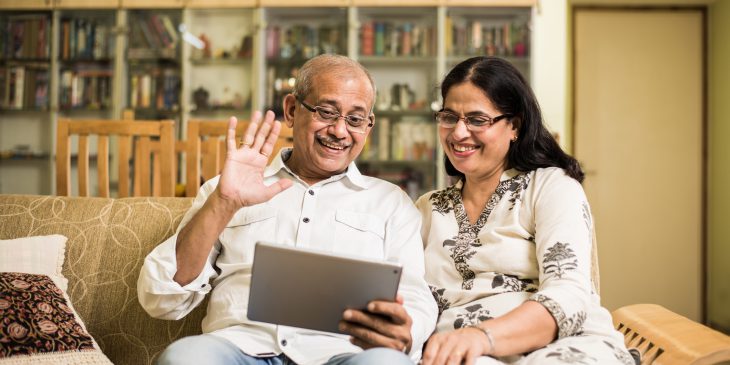The novel coronavirus has rapidly spread across the globe, and we are now seeing business closures and limitations in movement throughout the U.S. An increasing number of people will find themselves alone: in self-isolation as a precaution or quarantine to prevent the spread of disease.
Thankfully, we now have access to social media, which connects us across the globe in real-time. While social media often gets a bad rap for encouraging mindless scrolling, we can use it to maintain connections, stay informed and support our mental health.
Apps like FaceTime and Skype allow us to not only hear people’s voices, but to see that they’re OK and what their needs may be. For our elderly relatives and neighbors who are high-risk and likely to be isolated, we can make sure they know how to use these apps, but also not be afraid to pick up the phone and call. Jeffrey Magill, manager of emergency preparedness at UPMC Western Psychiatric Hospital, says, “I think sometimes checking in doesn’t mean talking about COVID-19; it can be using healthy distractions and thinking about good times just to help people ground themselves and feel they can escape the heaviness of this event.”
Other healthy distractions include connecting with faith-based organizations online, playing games and catching up on TV shows. In addition, we can connect through exercise or learn new things through the plethora of online courses and informational YouTube videos. Many brands are creating online content to provide welcome entertainment in lieu of physical experiences.
Although Twitter and Facebook can help us to connect with others and keep us informed under rapidly changing circumstances, it’s important to make sure that our information is coming from credible sources, mainly the Centers for Disease Control and the World Health Organization.
When dealing with those online who may be over- or under-reacting to the situation, Dr. Jennifer Beckjord, a clinical psychologist at UPMC Western Psychiatric Hospital, says, “At the end of the day, the only thing that we can control is our own decision making and our own behaviors. I think the best we can do about others is to provide education and hopefully role-model positive decision-making.”
Adds Magill, “These are very trying times, emotions are high, people’s abilities to deal with added stress can be a challenge, so I would just be really cautious and careful what we’re posting and to maybe think twice before we hit that send button.”
Anyone looking specifically for information about coping strategies can turn to the Substance Abuse Mental Health Service Administration, the National Child Traumatic Stress Network and the resolve Crisis Services for Allegheny County residents. To maintain our own mental health and well-being, Dr. Beckjord suggests, “Stay informed, but in a balanced way. Don’t stay glued to the TV and watch the news 24/7, and make sure everyone’s using sources that are reputable.”
About the Author:
Kylia Williams is an integrative systems biology Ph.D. candidate in the University of Pittsburgh School of Medicine. She is participating in a UPMC Science Writing Mentorship Program.









